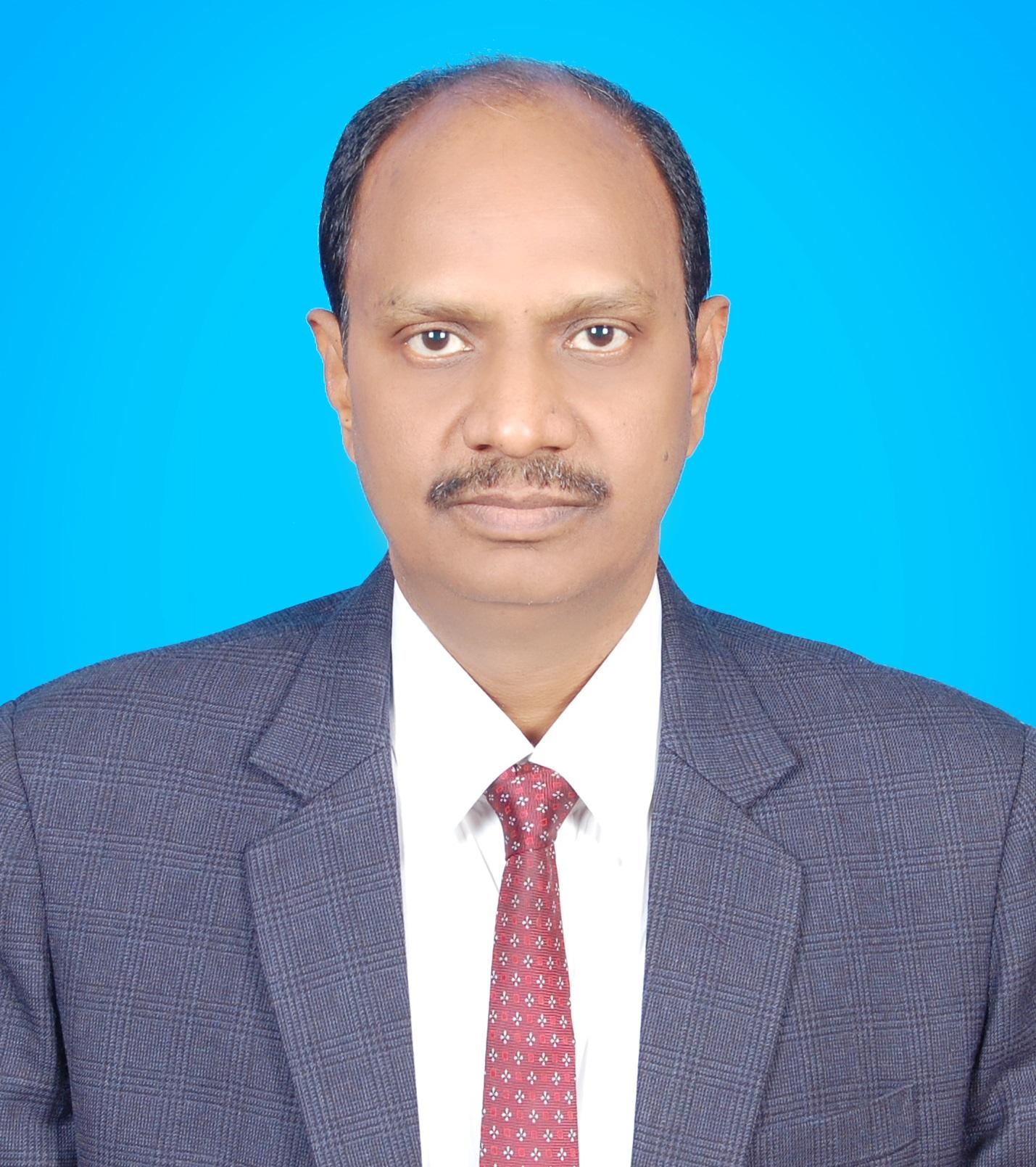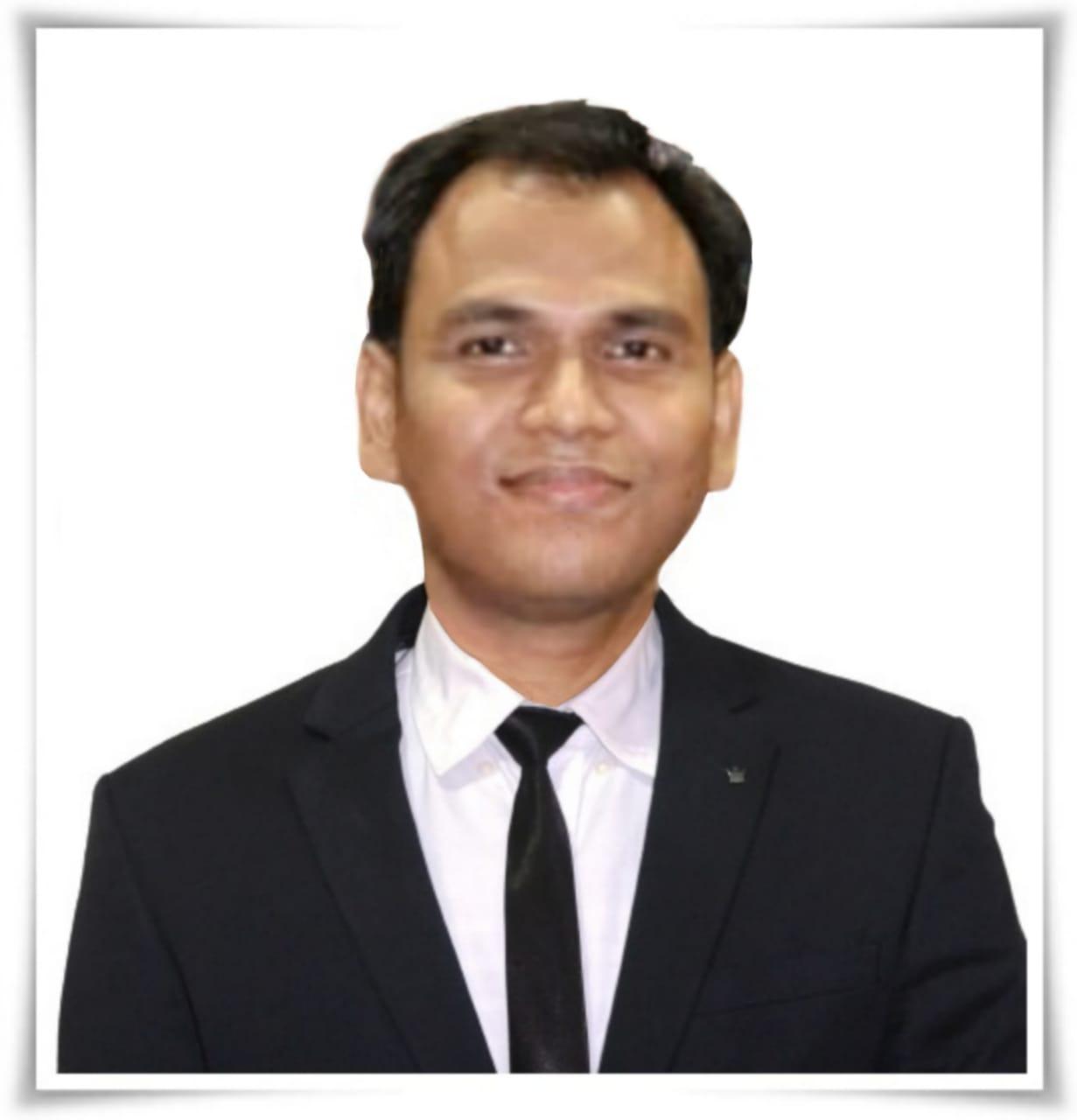Department of Computer Science & Engineering

About
The department offers B. Tech. program in Computer Science & Engineering. The department is a center for advanced studies, keeping pace with the latest in the rapidly changing environment of information technology. It has been a consistent endeavor of the department to adapt itself and its programmers to mirror the requirements of the constantly evolving IT environment in India and abroad.
Presently the department is running B.Tech programme in Computer Science and Engineering with intake of 180 and is NBA accredited in the Academic year 2023-24, 2024-25 and 2025-26.
Computer science and engineering (CSE) is an academic program that integrates the fields of computer engineering and computer science. The domain focuses on computer architecture, processor design, operating systems, high-performance computing, parallel processing, computer networks, and embedded systems. CSE programs also include core subjects of computer science such as the theory of computation, design, and analysis of algorithms, data structures and database systems.

Vision & Mission of the Department
Vision of the Department:
Excellence in education to produce competent computer professional to meet the need of industry and society.
Mission of the Department:
- To impart quality education in computer science & engineering through competent faculties, good infrastructure and learning resources to produce competent graduates required by the industry.
- To inculcate knowledge and skill sets and to strengthen industry-institute interaction to promote individual and team excellence to meet the requirement of industry.
- To develop graduates to be computer professionals with high ethical standard and self-learning ability.
Program Educational Objective
| PEO No. | Program Educational Objectives Statements |
|---|---|
| PEO1 | To prepare competent computer science graduates to have successful career in application software development and in allied industries. |
| PEO2 | To impart in depth knowledge in core computer science and engineering domain and expertise in providing solution to complex problems using modern IT tools to meet the requirement of industries. |
| PEO3 | To inculcate professional skills and to work effectively as individual and member of a team in multidisciplinary projects. |
| PEO4 | To develop self learning ability, to protect environment and exercise ethical code of conduct in professional practice and activities. |
Program Outcome:
| PO No. | Description |
|---|---|
| PO1 | Engineering knowledge: Apply the knowledge of mathematics, science, engineering fundamentals, and an engineering specialization to the solution of complex engineering problems. |
| PO2 | Problem analysis: Identify, formulate, review research literature, and analyze complex engineering problems reaching substantiated conclusions using first principles of mathematics, natural sciences, and engineering sciences. |
| PO3 | Design/development of solutions: Design solutions for complex engineering problems and design system components or processes that meet the specified needs with appropriate consideration for the public health and safety, and the cultural, societal, and environmental considerations. |
| PO4 | Conduct investigations of complex problems: Use research-based knowledge and research methods including design of experiments, analysis and interpretation of data, and synthesis of the information to provide valid conclusions. |
| PO5 | Modern tool usage: Create, select, and apply appropriate techniques, resources, and modern engineering and IT tools including prediction and modeling to complex engineering activities with an understanding of the limitations. |
| PO6 | The engineer and society: Apply reasoning informed by the contextual knowledge to assess societal, health, safety, legal and cultural issues and the consequent responsibilities relevant to the professional engineering practice. |
| PO7 | Environment and sustainability: Understand the impact of the professional engineering solutions in societal and environmental contexts, and demonstrate the knowledge of, and need for sustainable development. |
| PO8 | Ethics: Apply ethical principles and commit to professional ethics and responsibilities and norms of the engineering practice. |
| PO9 | Individual and team work: Function effectively as an individual, and as a member or leader in diverse teams, and in multidisciplinary settings |
| PO10 | Communication: Communicate effectively on complex engineering activities with the engineering community and with society at large, such as, being able to comprehend and write effective reports and design documentation, make effective presentations, and give and receive clear instructions. |
| PO11 | Project management and finance: Demonstrate knowledge and understanding of the engineering and management principles and apply these to ones’s own work, as a member and leader in team, to manage projects and in multidisciplinary environments. |
| PO12 | Life-long learning: Recognize the need for, and have the preparation and ability to engage in independent and life-long learning in the broadest context of technological change. |
Program Specific Outcome:
| PSO NO. | Description |
|---|---|
| PSO1 | Apply the concept of IT tools and fundamental of computer Science to demonstrate the multi-disciplinary environments. |
| PSO2 | Apply the concept of artificial intelligence to solve interdisciplinary problems and prediction. |
Head Desk
It gives me immense pleasure to pen down my greetings for all the students and parents on behalf of Department of Computer Science and Engineering, ITM GIDA, Gorakhpur. The Department of Computer Science & Engineering was established in ITM in 2001. Our Computer Science & Engineering programme aims to equip students with the core competence of developing high-quality production-grade software, while also cultivating the skillset to keep abreast with the latest state-of-the-art technologies. The curriculum remains kindred to industry requirements, with students spending their final semester at leading technology companies like Amazon, WIPRO, Tata Consultancy Services, Byjus etc, for the students to bridge the gap between academics and I.T industry. The objective is to empower our students with latest technical knowledge and skills by providing them with the best teaching faculty, lab facilities, excellent development environment and excellent infrastructure. My goal and vision to share and demonstrate the knowledge I achieve and find the easiest way to explain the concepts, principles, and theories related to computer science and software applications for my students. Engaging with students to explore the curriculum can be more appealing to young people. Looking and guiding to make education more practical and function able. Always ready to support the departmental work and prepare student for their professional career with continuous learning.

Dr. Krishna Kumar
Head of DepartmentPrograms offered
Post Graduate:
- Master of Technology (M. Tech) in Computer Science & Engineering
Undergraduate:
- Bachelors of Technology (B. Tech) in Computer Science & Engineering
Diploma:
- Diploma in Computer Science & Engineering
Faculty
Designation : Professor
Qualification : M.Tech, MBA, Ph.D (CSE)
Designation : Professor
Qualification : M.Tech, Ph.D
Designation : Associate Professor
Qualification : Ph.D
Designation : Associate Professor
Qualification : Ph.D
Designation : Assistant Professor
Qualification : M.Tech, Ph.D
Designation : Assistant Professor
Qualification : Ph.D.
Designation : Assistant Professor
Qualification : M.Tech
Designation : Assistant Professor
Qualification : M.Tech
Designation : Assistant Professor
Qualification : M.Tech
Designation : Assistant Professor
Qualification : M.Tech
Designation : Assistant Professor
Qualification : M.Tech
Designation : Assistant Professor
Qualification : M.Tech
Designation : Assistant Professor
Qualification : M.Tech
Designation : Assistant Professor
Qualification : M.Tech, Ph.D(Pursuing)
Designation : Assistant Professor
Qualification : M.Tech
Designation : Assistant Professor
Qualification : M.Tech
Designation : Assistant Professor
Qualification : M.Tech, Ph. D
Designation : Assistant Professor
Qualification : M.Tech
Designation : Assistant Professor
Qualification : M.Tech
Designation : Assistant Professor
Qualification : M.Tech
Designation : Assistant Professor
Qualification : M.Tech
Designation : Assistant Professor
Qualification : M.Tech
Designation : Assistant Professor
Qualification : M.Tech
Designation : Assistant Professor
Qualification : M.Tech
Designation : Assistant Professor
Qualification : M.Tech
Designation : Assistant Professor
Qualification : M.Tech
Designation : Assistant Professor
Qualification : M.Tech
Designation : Assistant Professor
Qualification : M.Tech
Designation : Assistant Professor
Qualification : M.Tech
Designation : Assistant Professor
Qualification : M.Tech
Designation : Assistant Professor
Qualification : M.Tech
Designation : Assistant Professor
Qualification : M.Tech
Designation : Assistant Professor
Qualification : M.Tech
Designation : Assistant Professor
Qualification : M.Tech
Designation : Assistant Professor
Qualification : M.Tech
Innovation by Faculty in Teaching and Learning:
I am faculty of CSE Department of ITM GIDA. In 6th semester, I teach course named software engineering. I have experimented the implementation of collaborative learning in my class room to enhance the learning of the students.
Collaborative Learning
Contribution of Collaborative learning in improvement of student learning:
- Collaborative learning teams attain high level of thinking skills and preserve information for a long time then student working individually.
- Student who demonstrate lover level of achievements improved when working in divers group
- Collaborative learning involves planning with clear direction, student work role and outcomes and measure for learning goals.
- Promotion of social interaction buildup of student confidence and improvement in decision making skills.
- Students who learn how to collaborative through collaborative learning can become adults who work together more effective in the work place.
- Lower level student mixed with higher level students so that peer learning & coaching is incorporated.
Statements of clears Goal:
Specific: My goal is to develop skills into develop skills into students as stated in the course outcome using collaborative learning.
Miserable: Attainment level of student performance in internal assessment test-I and II and in university examination is measured which indicates the skills acquired by the students.
Achievable: By appropriate teaching learning process the stated goals i.e. course outcome are to be achieved.
Relevant: I will plan my teaching and learning strategy keeping in view developing the skills as in course outcome into students.
Time bound: The set goals are to be achieved during the semester period.
Collaborative Learning strategy I used in Class Room:
Innovative Method I used in my class room implementing collaborative learning :
- Delivered presentation through PPT on the materials required for the solution of assigned task and providing guidance towards solving the assign takes. Insure that all are student centric activity and my role is minimal.
- I have formed group of 5-6 students of mixed skill groups.
- Lab assignments assign to each group.
- I have insured that each students get opportunity to contribute.
- Receiving the solution for assign task from each group I evaluated each group on its own merits i.e. I have graded per how well each group met its goals and how each students contribute on the assign task.
- Deliver a lecture that especially targets any misconception are gap in the solution of assigned task revel.
Sample of Assignment given to students:
| Department of Computer Science & Engineering Session (2021-22) Assignment-I |
|---|
|
Subject Code : KCS-601 Subject Name : Software Engineering Duration : 100 Minutes Date : 16/02/2022 |
| Group No. | Topics |
|---|---|
| 1. | Student Information System |
| 2. | Employ Management System |
| 3. | Restaurant Management System |
| 4. | Hotel Management System |
| 5. | Hospital Management System |
| 6. | Medical Store Management System |
| 7. | Book Store Management System |
| 8. | Student’s Academic Performance System |
| 9. | Two-Wheeler Rental System |
| 10. | Canteen Management System |
| 11. | E-Book management System |
Infrastructure of CSE Department
| Item | No. |
|---|---|
| HoD Chamber | 01 |
| No. of Lecture Hall | 08 |
| No. of Tutorial Rooms | 03 |
| Smart Class Room | 01 |
| No. of Laboratories | 04 |
| Faculty Cabins | 21 |
Details of Laboratories for Undergraduate Program
| Laboratory Name | Quantity | Description of Lab |
|---|---|---|
| Programming / Python Lab | 100 | This lab is equipped with the Basic Programming tools and advance tools like Pyhon where the students can perform the various algorithmic designing techniques like; Searching, Sorting, dynamic programming, etc. This helps them to develop the skills related to the competitive programming highly demanded by the top companies. |
| S/W Engg./ Database Lab | 60 | The students may learn the specialized software that are used for the management of application development and databases. The software’s like Java, MySQL are available in the lab to learn the various operation on the databases. |
| Web Technology Lab | 60 | The students may learn the specialized software that are used for developing Web Application software. The software’s like Java, PHP, WAMP Server, etc are available in the lab to learn the various operation on the Web Technology. |
| Project Lab | 60 | This lab is equipped with the advance tools where the students can perform the various image, AI & ML, etc related operations. The student can also learn and develop various techniques used by different categories of software. |
Placed Student List
(Accenture)
(Collabera)
(Jaro Education)
(TCS)
(TCS)
(TCS & More..)
(TCS)
(Infosys)
Reports
Workshops/Seminars/Training/Course Conducted :
Seminar and Summit
- The seminar on “Artificial Intelligence – Technology Trends & Advancements” Organized byDepartment of Computer Science & Engineering in institute of Institute of Technology & Management, GIDA, Gorakhpur- 273209, January 24, 2020.
- The summit on “Bridging Industry Academia Skill Gap 2020” Organized by Department of Computer Science & Engineering in institute of Institute of Technology & Management, GIDA, Gorakhpur- 273209, February 22, 2020.
Expert Lectures Conducted:
Topic of The Webinar
- Mr. Rajesh Srivastava taken lecture on topic “Campus to Corporate” on dated December 28,2019
- Mr. Sanjay Singh taken lecture on topic “Product Management” on dated October 12,2020
- Mr. S. Chanukya taken lecture on topic “Machine Learningt” on dated October 16,2020
- Flt. Lt. Anirudha URS taken lecture on topic “Indian Airforce recruitment& Career opportunity for Engineering and graduates” on dated November 17th, 2020
- Mr. Rahul Garg taken lecture on topic “Live Programs for career progression with internship from Prutor@IITK ” on dated April 08, 2021
Industrial Visit :
- Industrial visit to ITI limited, Mankapur, Gonda, 271308, on Date: November 15,2020.
Organizing an E-Quiz association with The Institution of Engineers (India) Gorakhpur Local Centre:
- Dr. Shachi Mall Organizing an E-Quiz on topic “Machine Learning” on dated June 01,2020
- Mr. Amit Kumar Kar Organizing an E-Quiz on topic “Deep learning with Convolutional Neural network” on dated June 19 ,2020
- Mr. Ajay Kumar Gupta Organizing an E-Quiz on topic “DAA” on dated September 18,2020
- Ms. Meenakshi Srivastava Organizing an E-Quiz on topic “Cloud Computing” on dated October 13, 2020
- Ms. Preeti Yadav Organizing an E-Quiz on topic “Web Technology” on dated January 17,2020
- Mr. Rahul Chakraborty Organizing an E-Quiz on topic “Compiler Design” on dated January 10,2020
Feedback Form (Faculty / Student)
CONTACT US
- AL-1, Sector-7, GIDA, Gorakhpur-273029
- +91-8081209500
- director@itmgkp.edu.in
- director.itm@gmail.com







































